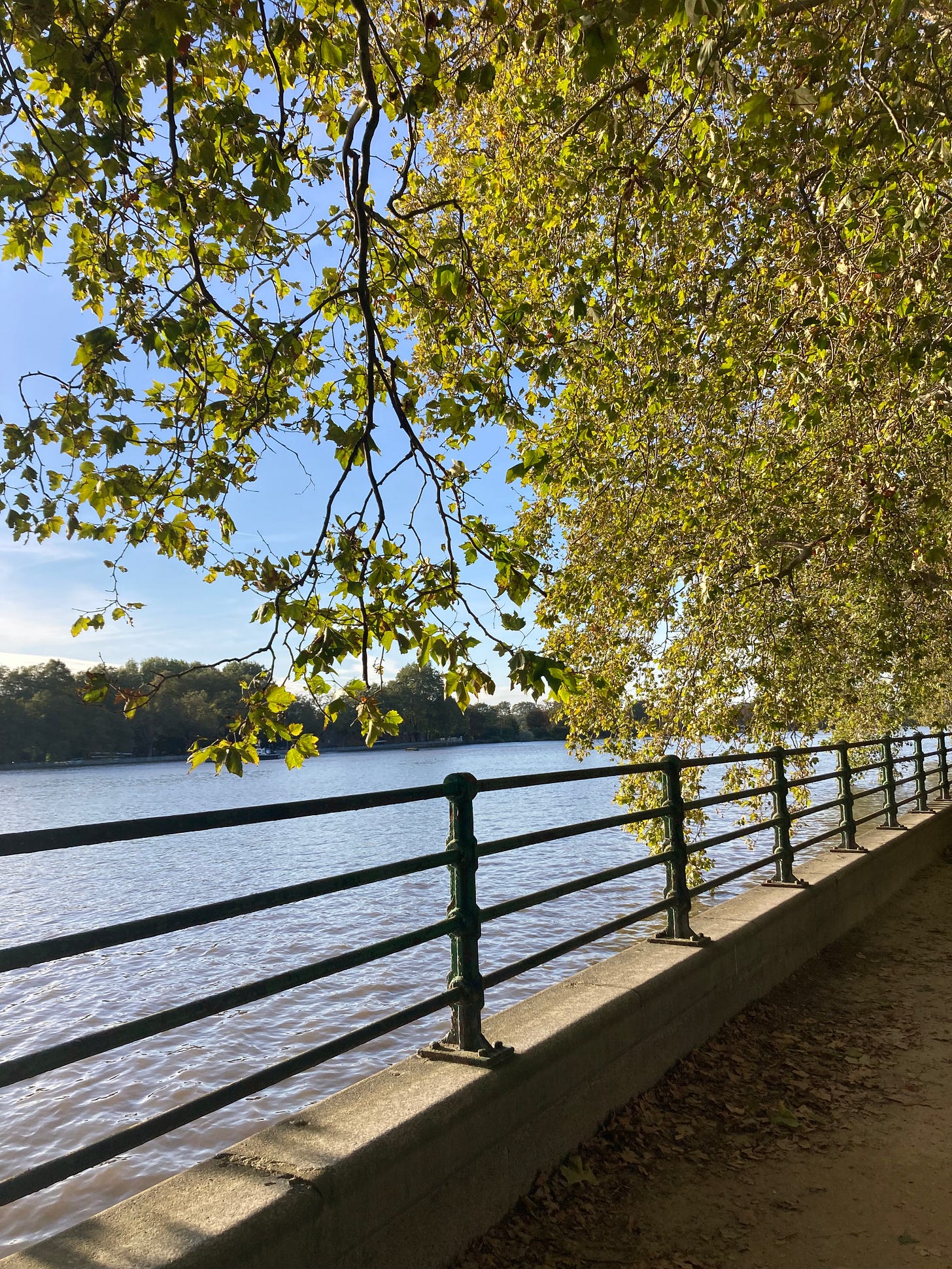Nostalgia And Fondness
The present is fleeting; I still have desires; writing about money makes me anxious and free; knowing that everything will be different brings me calm and purpose.
This post is exclusive for paid subscribers, but you can read an excerpt for free. You can find the original version, in Spanish, on this link.
If you want to share something with me, you can reply to this email or write to me at txt.juana@gmail.com.
Once again, I find myself compulsively watching Girls. I'm not good with TV series. It's not that I'm different from most people; I know that almost everyone in my generation is like this. When we start a show, we watch it until we're fed up, until we're blind. We do it so quickly that we miss some things. It doesn't matter; we’re fine with that. This enables the rewatch. It's a cycle that thankfully never ends.
I'm watching Girls non-stop, episode after episode, amazed at how well it captured an era. The fashion, the customs, the music, especially the idiosyncrasies. I lived the last decade far from Brooklyn, and yet I feel like I could have been there with them. Watching this show makes me understand that many things got lost without me realising it. They're no longer here, and I miss them because I know they were there once. Phone calls are not just a narrative device. In that year, there were other more practical methods of communication, but the habit of calling each other was still alive. When I see Hannah wasting time on Facebook while talking to her friend with her cell phone resting on her shoulder, I think, "Yes, it was like this." There are thousands of examples like this one. The way we took photos, the shoes we insisted on wearing, the power roles we dreamed of occupying. I was a teacher at a school, but I wore loafers and huge necklaces, as if I’d been a bank manager. I don't understand why the twenty-somethings of that era chose to find their stylistic inspiration from the corporate world, but it's undeniable that that's what we did. It fills me with nostalgia and fondness. And I'm fascinated by the realisation that everything, even what you think is a unique expression of your personality, belongs to its era. We can believe we're existing outside a collective cultural and identity movement, but when we step away from it, we discover that's not the case. When we leave, when the era ends, we understand that even if we didn't want to, we were part of it. Belonging happens on its own, just by existing in the world.
Substack is also an era. Writing like this, reflecting personally on what happens to each of us, is something temporary. It's in motion, and one day it will be gone. The platform may still exist, but our ways will change. The same thing happened in the past decade. In 2016, the focus was on collective feminist ideas, and essays were always written from the outside in. This is what's happening, and this is how it affects me. Now what is sought is a reverse narrative. We identify what happens to us to understand something larger. The personal is still political but from a different place. I suppose it's a reaction to the fatigue we feel after so much polarised discourse. In 2016, things were either right or wrong. Now things are more complicated. They're murky. No candidate is good, none is much worse than the other; conflicts always have two victims and victimisers, even if the scale leans more heavily to one side. It's fine, it's an era. It's an era of intimacy, an era that understands the contradictory nature of human beings. I like it. It's harder to navigate this era than the one where we could point our finger at what was right and what was wrong, but in some way, I prefer it because it feels more genuine. People are showing themselves. We don't write from what we think but from what we feel. Like every era, of course, it will come to an end. I don't know what comes next, but I know something that is not this will follow. Something that will act as a response to this era that feels so familiar today. We will feel ready to leave behind what we know today, personal resources will become exhausted and we will need to learn to communicate and connect in another way.
The imminence of the end and the inherently fleeting nature of the present push me to want to write more than ever. It surprises me because I'm not usually like that in other aspects of my life. If I don't get there when the party’s starting, I don't leave my house. But in writing, I can be everything that I can't be the rest of the time. I can live in the moment, seize it, make it mine. Instead of planning and preparing, I dive in at the first sign of water. It's because I don't want this era to slip away. It's because I know it's now or never. Sometimes my students ask me how I manage to write so much every week, how I always find something to say, where the words come from. Always from the urgency. Night enhances day, death dignifies life. The calendar indicates that the era is ending when you starts to feel comfortable. That's where the words come from. I write to keep the door open to my nostalgia, so I never stop feeling fondness.


